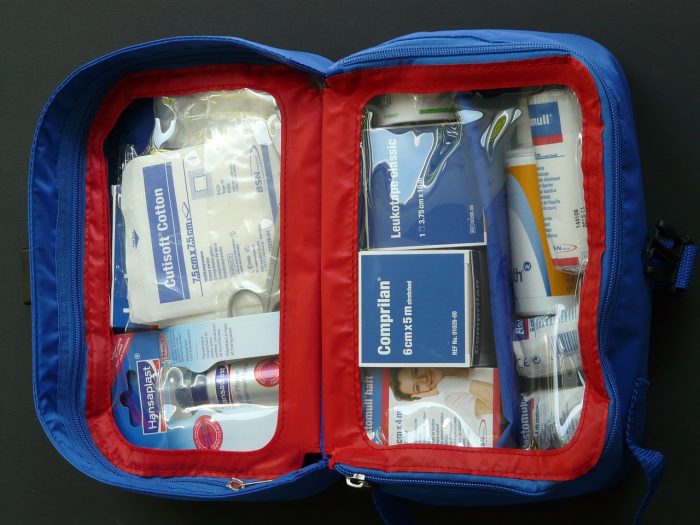Is there anything worse than getting sick while traveling? The worst nightmare comes when you realize that your hotel room is not even stocked with any medicines at all.
The good news is that many travel ailments can be solved with just a few pills and some knowledge on how to effectively use them. So, if you have no space in that suitcase, it’s time to take out those extra pairs of jeans and shoes and instead pack some over-the-counter medicines.
You will be doing a huge favor to yourself because many of these medicines cannot be found in several countries in the world. Bringing them with you will be a life-saver!

Antidiarrheal, Like Imodium
This is a must-have because if you get struck with diarrhea, chances are that you won’t be able to run to any local pharmacy. This is a simple trick for frequent travelers when you are eating and drinking: Boil it, peel it, cook or forget about it.
If you accidentally ingest some bacteria, keep yourself hydrated. Antidiarrheal will help you venture out of your hotel and also manage the symptoms long enough to take public transport or even a local flight. However, they do not treat an infection. If you cannot keep down fluids, see your doctor.
A Mild Laxative, Like Dulcolax
Getting diarrhea on your trip is the worst nightmare. As if that is not enough, it changes your diet, disrupts your routines and removes you from your comfort zone, leading to “vacation constipation”. Yes, it is a condition of sorts.
To avoid this, eat plenty of fiber-rich foods, stay active, and remember to drink lots of fluids. But if all this fails, you can always return to your medical kit. Use laxatives sparingly, and if symptoms persist, contact your physician.
Pain Relievers, Like Tylenol or Motrin
You may end up sore in some spots due to dragging luggage at the airport, exploring the city on foot, or sleeping in a bed that is not yours. Motrin is effective at reducing swelling and inflammation, whereas Excedrin is useful for headaches.
So, if you wake up with menstrual cramps, reach for the Motrin. Be careful not to take in excess, as too much consumption of these medicines can be harmful to your kidneys and liver.
Antibiotic Ointments, Such as Neosporin
If you have cut your finger or scraped your knee, first wash it thoroughly with water and soap. Some of these minor cuts will heal on their own, but using an antibiotic ointment can speed up the healing process. Remember to keep the wound covered and watch out for signs of infection.
Antihistamines, Like Benadryl or Claritin
You can never know what triggers or environment you might encounter abroad. As such, keep with you a dose of antihistamine, more so if you are prone to allergies. Note that some antihistamines like Benadryl will make you drowsy.
This is not ideal, especially if you were hoping to go sightseeing. If you still encounter difficulties such as difficulty breathing, antihistamines will not cut it; instead, call your local physician.
Sleep Aid, Like Melatonin
Fighting jetlag is one of the nightmares travellers face. Get plenty of exercise during the day, stay hydrated, and avoid caffeine later in the evening. If you still can’t get to sleep in the night, reach out for your sleeping aids. Remember to take them at least 30 minutes before bedtime, and hopefully, you will be able to rest soundly.
Conclusion
These medicines should be a substitute for what your physician has prescribed. If you have any medical conditions, remember to talk to your doctor first before you begin the self-treatment.































